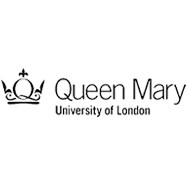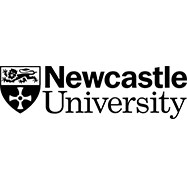Case studies
-

University of Southampton – mapping potential for solar energy
A 3D virtual city showing the levels of solar radiation on rooves throughout the year can instantly show which buildings are most suitable for solar energy systems.
Read more >
-

Queen Mary University of London – healthy air for Londoners
QMUL researchers have demonstrated some of the lung harm that air pollution is causing in London and have influenced the introduction of the London Ultra Low Emission Zone (ULEZ).
Read more >
-

University of Bristol – reducing the impact of research laboratories
Green Labs Certification for the University of Bristol's 990 laboratories means staff, students and the wider STEM community have considered the direct impact of research activity.
Read more >
-

University of Exeter – using AI to assess climate risk
The Joint Centre for Excellence in Environmental Intelligence (JCEEI) utilises AI to address climate and biodiversity change by interrogating multiple sources of data. It is working with a city council on how to make buildings safe during heatwaves, and collaborating with The Alan Turing Institute, energy futures lab at Imperial College London and the Universities of Edinburgh and Warwick on decision-making approaches for energy security and net zero.
Read more >
-

University of Oxford – modelling risks to infrastructure
The University of Oxford’s Environmental Change Institute has developed modelling tools to help decision-makers identify risks from climate-related infrastructure failure and build long-term resilience. Their approach has also been adopted internationally and by UK Government bodies.
Read more >
-

Newcastle University – scaling up electric transport
Collaborative research in electric transport is part of a national network of four cutting-edge Driving the Electric Revolution Industrialisation Centres, at the forefront of global efforts to develop the cars, planes and ships of the future.
Read more >
-

University of Edinburgh – promoting sustainable biofuel
The University of Edinburgh’s is helping east Africa achieve a United Nations target of sustainable energy for all by 2030 by researching use of biofuels and ensuring people have better access to sustainable fuel.
Read more >
-

University of Glasgow – bringing hydrogen home
Hydrogen is a promising green energy alternative, and the University of Glasgow is carrying out ground-breaking research in how to use it for heating and household appliances.
Read more >
-

King’s College London – improving battery safety
Safer, more efficient lithium-ion batteries, can contribute to a greener and more sustainable future for us all. Researchers are investigating fire-risks with these, and how to stop fires from starting and spreading.
Read more >
-

The University of Nottingham - developing low carbon energy storage
A new low-carbon energy storage system to supply cheap, on-demand heat for people living and working in the UK while researchers also investigate social, economic, environmental barriers that are preventing the uptake of community-based heat networks.
Read more >
-
Out of hours media enquiries
020 3816 1316
-
Dr Tim Bradshaw
tim.bradshaw@russellgroup.ac.uk
020 3816 1300
 X
X
